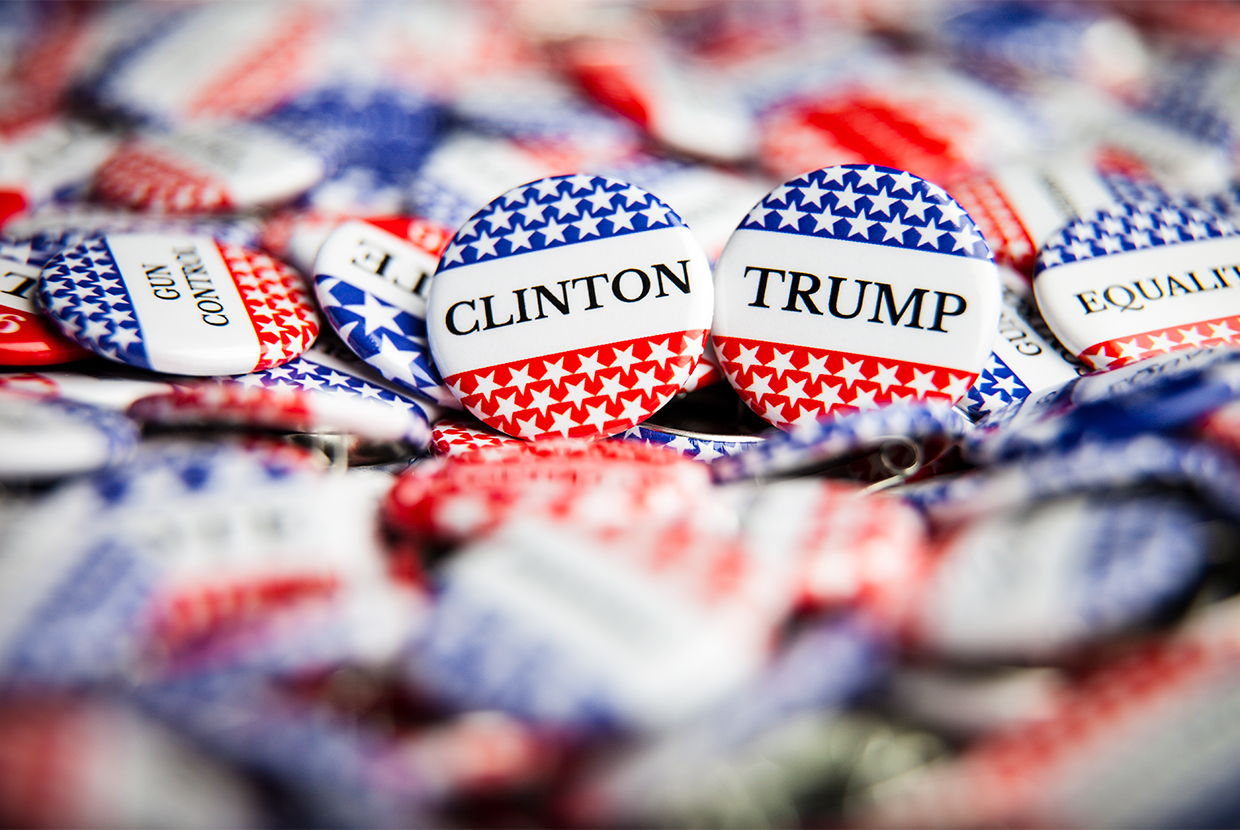Asian trade will suffer regardless of the outcome of this week’s US election, a leading economist has told GTR.
Rob Carnell, the chief economist at ING, says that the protectionist rhetoric from both Donald Trump and Hillary Clinton ahead of Tuesday’s vote doesn’t bode well for the Asian economy, which is heavily dependent on trade.
Both candidates have vowed to rip up the Trans-Pacific Partnership (TPP) in its current format in a bid to win the vote of the disenfranchised working class of America, many of whom feel that globalisation has penalised them disproportionately.
Clinton was once a strong proponent of the multilateral deal and in her time as Secretary of State, described it as the “gold standard” in trade deals.
However, in her efforts to see off Bernie Sanders’ challenge from the left wing of the Democratic Party in this year’s primaries, Clinton adopted a more hardline approach to the TPP. This, Carnell says, is bad news for Asia.
“The outcome is you don’t get something that could have been supporting trade growth, in particular Asian trade growth. Of course, Asia is a big trade region which thrives off strong trade. She’s closing the door on something quite positive. It’s not like she’s reversing something that already exists, she’s shutting off something that would be very helpful for the region,” he says.
While President Barack Obama is likely to attempt to push the TPP through in his “lame duck” period in office before January, few believe he has the political capital to do so. Trade advocates are pinning their hopes on a Clinton victory and a change of heart, away from the glare of the electoral microscope.
“It’s possible that although she now opposes the deal as it stands, she might return to it later and say: ‘Yes we support it, but we do need to see more protection of US jobs if we’re going to sign on.’ Then she could say that she did oppose it, but had it improved.
“That should help spur another round of trade expansion, and that should help US growth. That would be great for Asia if it happens but we just don’t know – even if we were 100% certain who is going to win – what they will do after the election,” Carnell says.
TPP troubles
Other experts are sceptical about any revision to an agreement which was fraught with difficulties in reaching its current status. TPP was signed by the 12 Pacific Rim member states in February and now must be ratified by the individual parliaments.
In a reminder of how precarious the agreement is, scuffles broke out in the Japanese parliament as the government moved towards its ratification last Friday (November 4).
Embattled prime minister Shinzo Abe has made TPP one of the cornerstones of his foreign policy and is keen to have the text ratified before the US election, to leave less room for the US to reopen negotiations.
Tomohiro Yamamoto of the ruling Liberal Democratic Party (LDP) said that the ratification would “send a clear signal to the US that Japan has no intention of renegotiating the agreement”.
While this was strongly opposed by opposition politicians, who became embroiled in shoving matches in the Lower House as the ratification was debated, it is a warning for the future US president that it will be impossible to reopen dialogue.
“It’s going to be very hard to reopen the agreement. All the countries have made clear it’s not a political option for them,” Joshua Meltzer, senior fellow at the Brookings Institution tells GTR.
Of further concern is the threat of sanctions and tariffs being slapped on China for perceived currency manipulation. In September, GTR reported the predictions of Kevin Lai, dubbed the “Yuan Bear” for his prescient warnings on the Chinese currency, who forecast a nightmare for China should Trump win the election.
Trump has vowed to impose a 45% tariff on Chinese goods in response to perceived currency manipulation and in a bit to “reclaim millions of American jobs and revive American manufacturing by putting an end to China’s illegal export subsidies and lax labour and environmental standards”.
Lai, along with fellow Daiwa economist Olivia Xia, estimated that a 45% tariff on China would result in a US$420bn drop in Chinese exports to the US – 87% of total exports. Taking into account that the average domestic content in China’s exports basket is about 68%, this translates to 2.6% of GDP.
However, Clinton too has been strong on her rhetoric on China, Asia’s largest economy and the world’s largest trading nation, despite having courted strong relations with Beijing in the past.
If either candidate was to impose punitive measures against China after the US election, the ripple effect throughout Asia would be severe.
“If they look at China as an area of policy action – even if China slows a bit, that’s a huge cog in the centre with all the smaller economies whirring around outside it, providing it with inbound trade, taking its exports, which is then either taken in and consumed locally or pumped out to the rest of the world. I think it does slow growth quite heavily in the region and will slow the economy of the region too,” Carnell warns.







